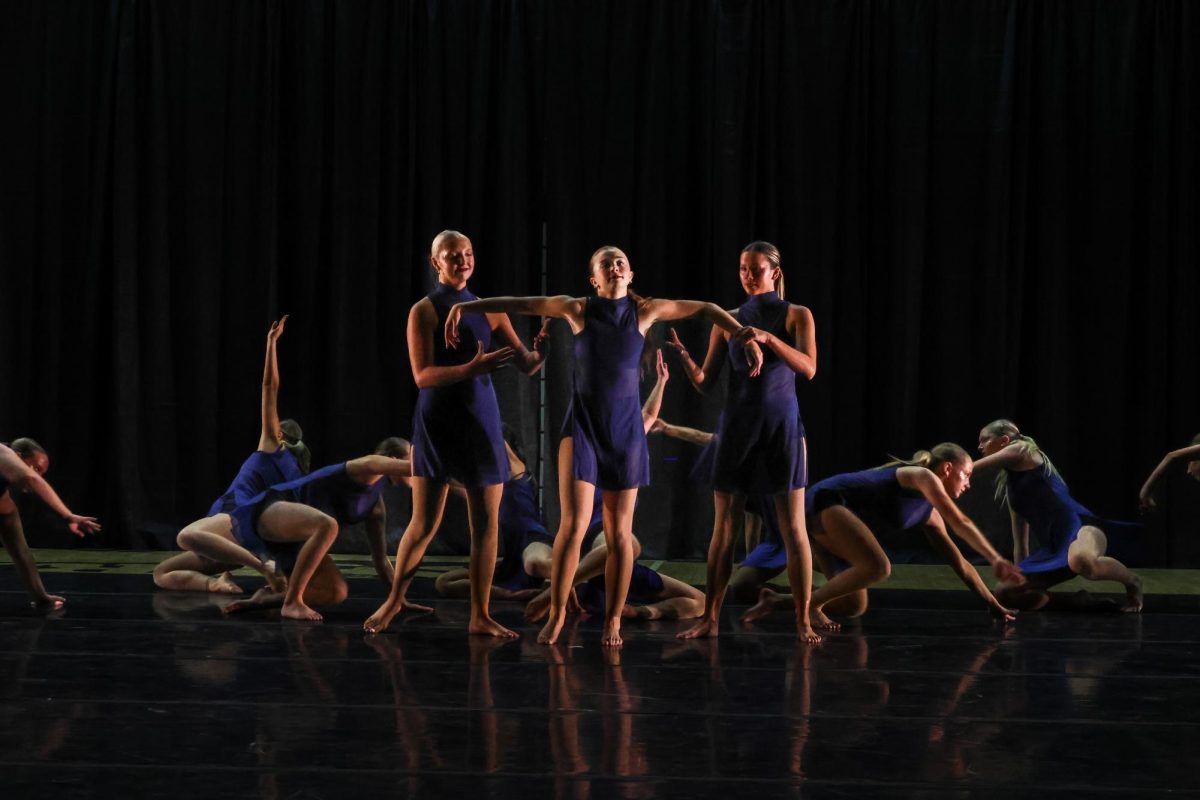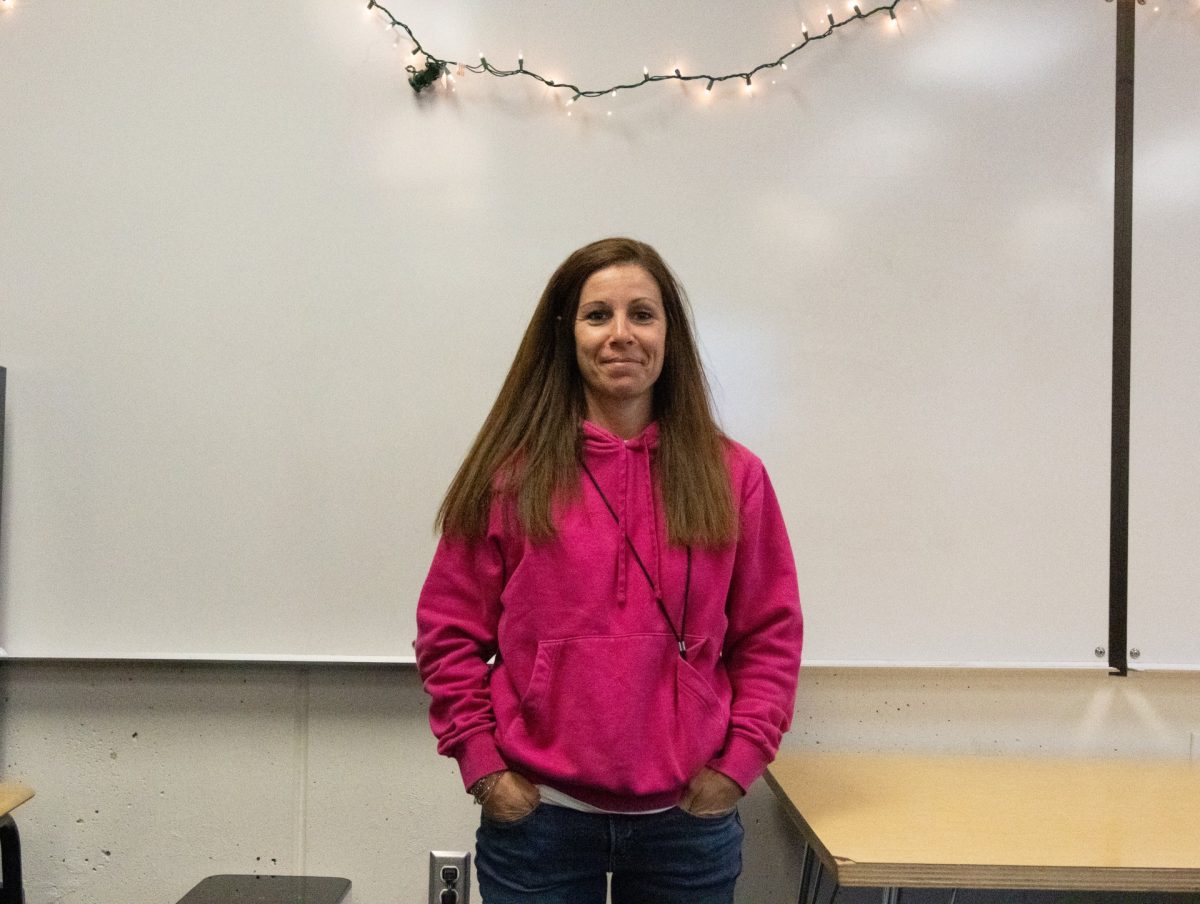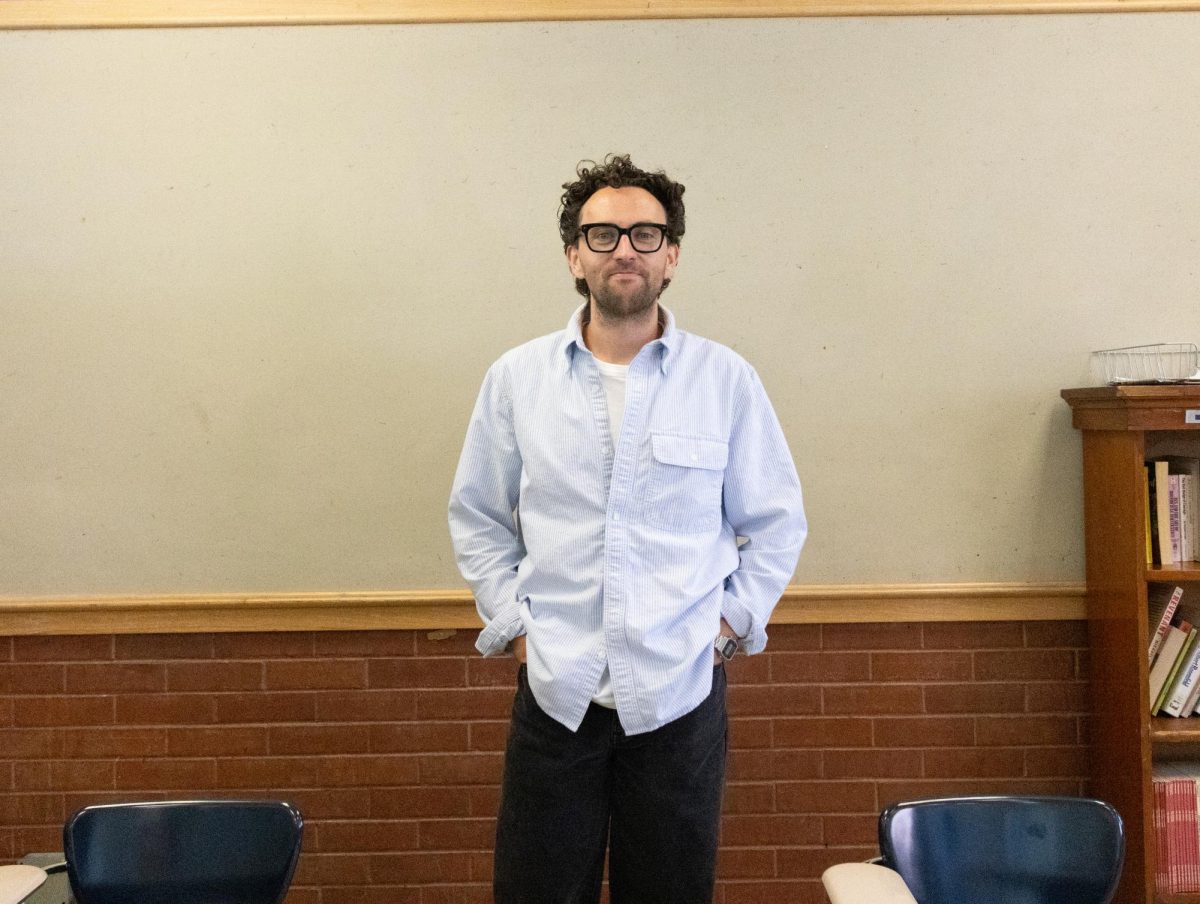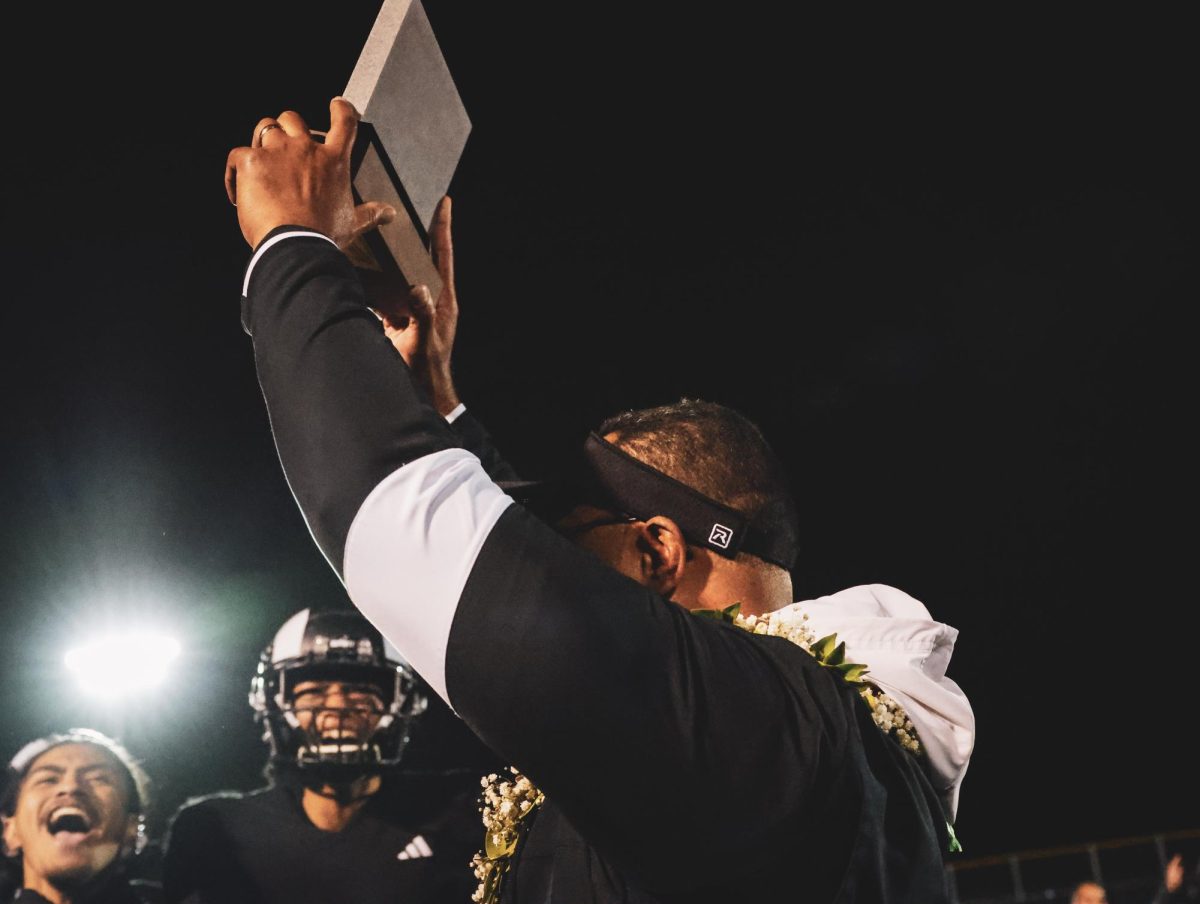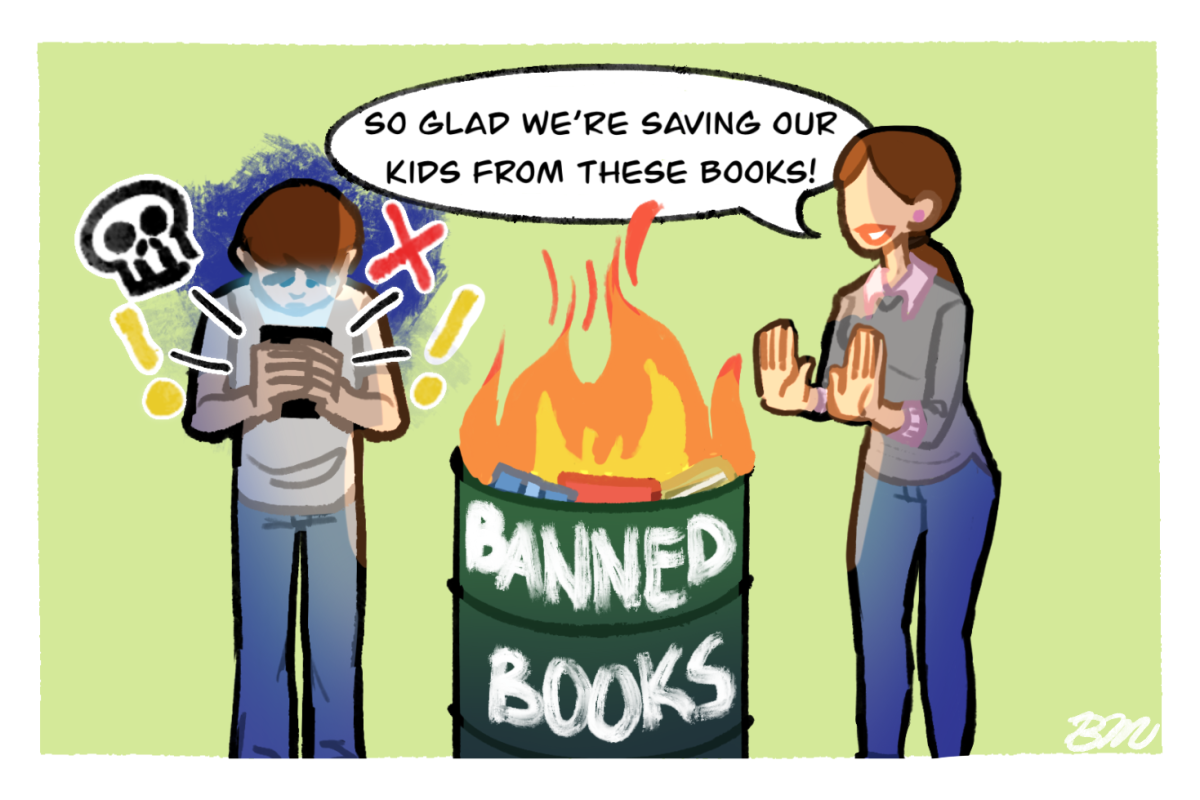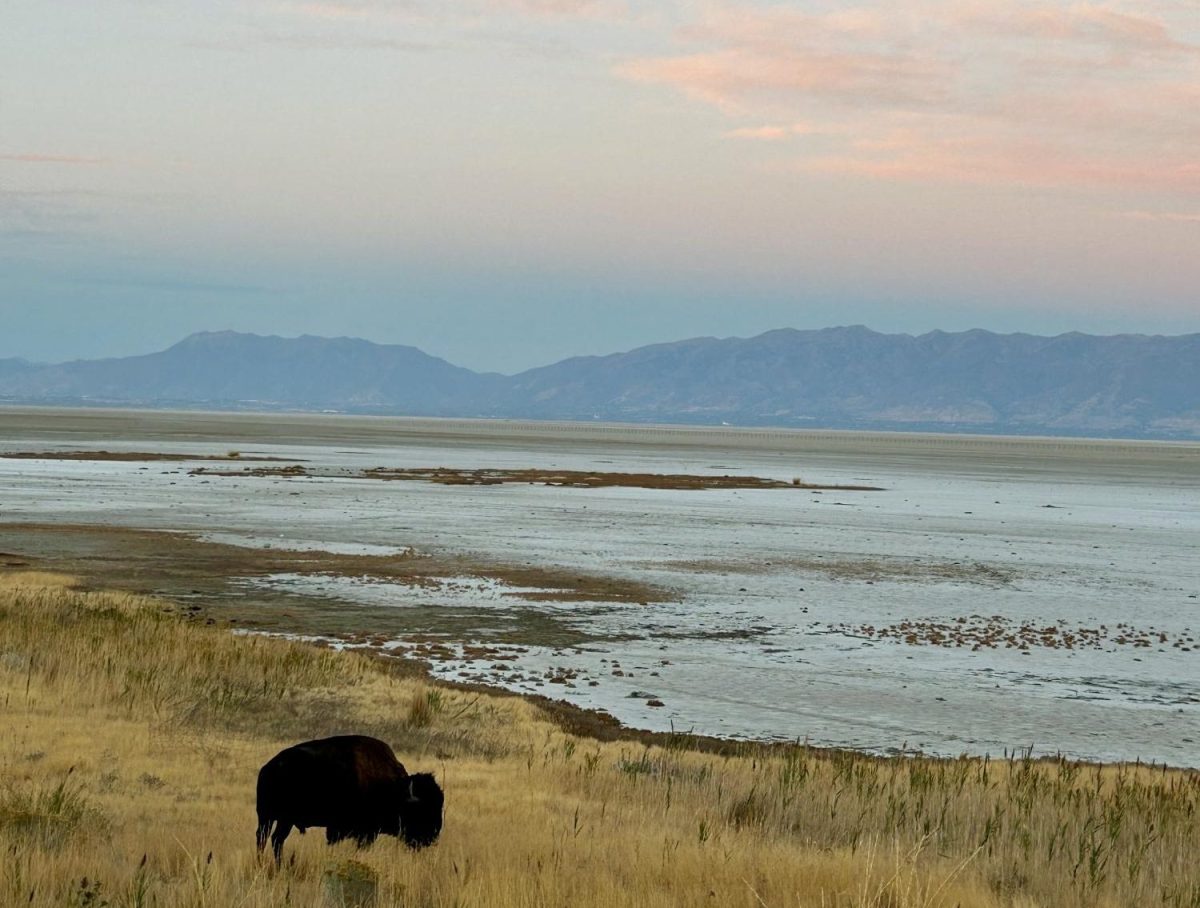Teenagers average 7 hours and 20 minutes per day on their phones. They average not even 8 minutes a day reading a book. And yet, books are the objects schools and parents are after.
This year, new law in Utah was implemented stating that if three out of the 41 school districts ban a book for indecent material, it’s automatically banned in all public schools. Typically, books are banned from schools for topics that teachers and parents deem too sensitive to kids. They are the ones who make the ultimate decisions, and students don’t have any say in the matter.
As Highland’s librarian, John Caldwell is the one who deals with the most books in the school, and therefore is the one who has the biggest job related to book bans—along with language arts teachers.
When banning a book, there are two paths. The first is a book being banned due to the sensitive materials discussed. Teachers and librarians throughout the district follow the law instituted from the legislature if a book is deemed pornographic, and the book is removed. The second path is a book challenge. This occurs when a parent of a student school requests to have a book reviewed.
“When that happens, a committee meets which would be the principal, myself, two teachers, and two parents. We would all read the book, have a discussion, and determine if it meets the criteria of having it removed,” Caldwell said.
During the sensitive materials banning, executive director of teaching and learning, Tiffany Hall, and Highland principal, Jeremy Chatterton, make the ultimate decision of whether books need to be removed from Highland. During a book challenge, the decision comes down to a couple of teachers, parents, Chatterton, and Caldwell. In neither path are students allowed to voice their own opinions or speak for themselves about what should happen to their own book choices.
On August 2, 2024, 13 books were banned from all public schools in Utah because of their objectively sensitive material.
These books were banned due to “pornographic and indecent material” discussed in them. Books were targeted despite the fact that phones—through apps like Tik-Tok and Instagram—create an opportunity to view these materials to a greater extent than books allow.
Teens spend the majority of their time on phones—and the internet—with nearly unlimited access to inappropriate pictures and videos. Compared to books, the range of pornographic material that can be accessed is a lot more than should be allowed. And while words can be bad, they are not creating the same feelings as videos or photos. With phones, it isn’t just words on paper anymore, it becomes real life.
About 15% of teens reported seeing pornography online for the first time at age 10 or younger, while the average age for viewing pornography for the first time is 12. Nearly 90% of kids ages 8-16 have reported seeing pornography while online. This is a problem, and adults are looking at the wrong source for these problems. It is not books that are the problem, it’s phones.
Of the 13 books that were banned in August, Highland only had one of them—Empire of Storms by Sarah J Maas. This book is the fifth in a series of eight for young adults. All other seven books are still allowed in public schools, but this middle-of-the-series book can only be found in public libraries to read. For students who have a hard time accessing public libraries, and who are just trying to peacefully enjoy a young adult fantasy series, banning the fifth book might cause some problems when reading the series.
Additionally, books that showcase real-life topics without softening them down are also being banned, even when these harsh topics are a real part of life. Books like 1984 by George Orwell, and The Color Purple by Alice Walker were banned in numerous schools across the US for various mature themes, many depicting political, religious, and sexual themes (rape and abuse among them). To be clear, these books don’t celebrate abuse or other mature themes but are actually written with the intent to make anyone abhor any such action.
These books and others contain messages and themes of what real abuse, or real violence in the outside world, looks like. Nevertheless, schools deem them as too intense, or too harsh for students. Teachers and parents don’t see that books that offer these mature themes could help students better understand the world around them.
Furthermore, books contain much more context compared to videos that are accessible on all phones. Books have background and stories that explain why certain material is discussed, while on phones, videos and photos are provided with no context or outside information or reasoning. Similarly, many women are sexualized everywhere on phones without the warnings that are included in books that this is wrong. Books contain this moral element, phones leave it out.
One solution could be making some books restricted to older students who are more ready for these more sophisticated themes than younger grades. Many seniors are 18, or are nearly 18, and almost heading out into the world of adults, while freshman are just 14, and still have almost five years before they are living away from home on their own.
“Some districts do a restricted check out where they will deem certain books good for juniors or seniors […], but it’s probably not something freshman or sophomores should be checking out,” Caldwell said. “Students generally check out books based on their interests or teacher recommendations and most freshman and sophomores just don’t read those books that might be restricted to them. It just naturally happens.”
Books that are banned for students who are younger, due to certain topics, might be okay for older students when looking at the big picture. Teachers need to take a step back and realize that when students do pick up a book—which in this generation is rare—that the themes and topics discussed in them are not as serious as they think, and in some ways, can actually be beneficial.
“When I think of banning books, I think of banning young adult books which is not okay,” Caldwell said.
Removing books from public schools robs young adults of valuable experiences and can take away from the moral’s books teach. There does have to be a line, and the line should be defined, but a lot of these books don’t cross that line. Teachers and parents need to reevaluate what the real problem for teenagers in school is.
